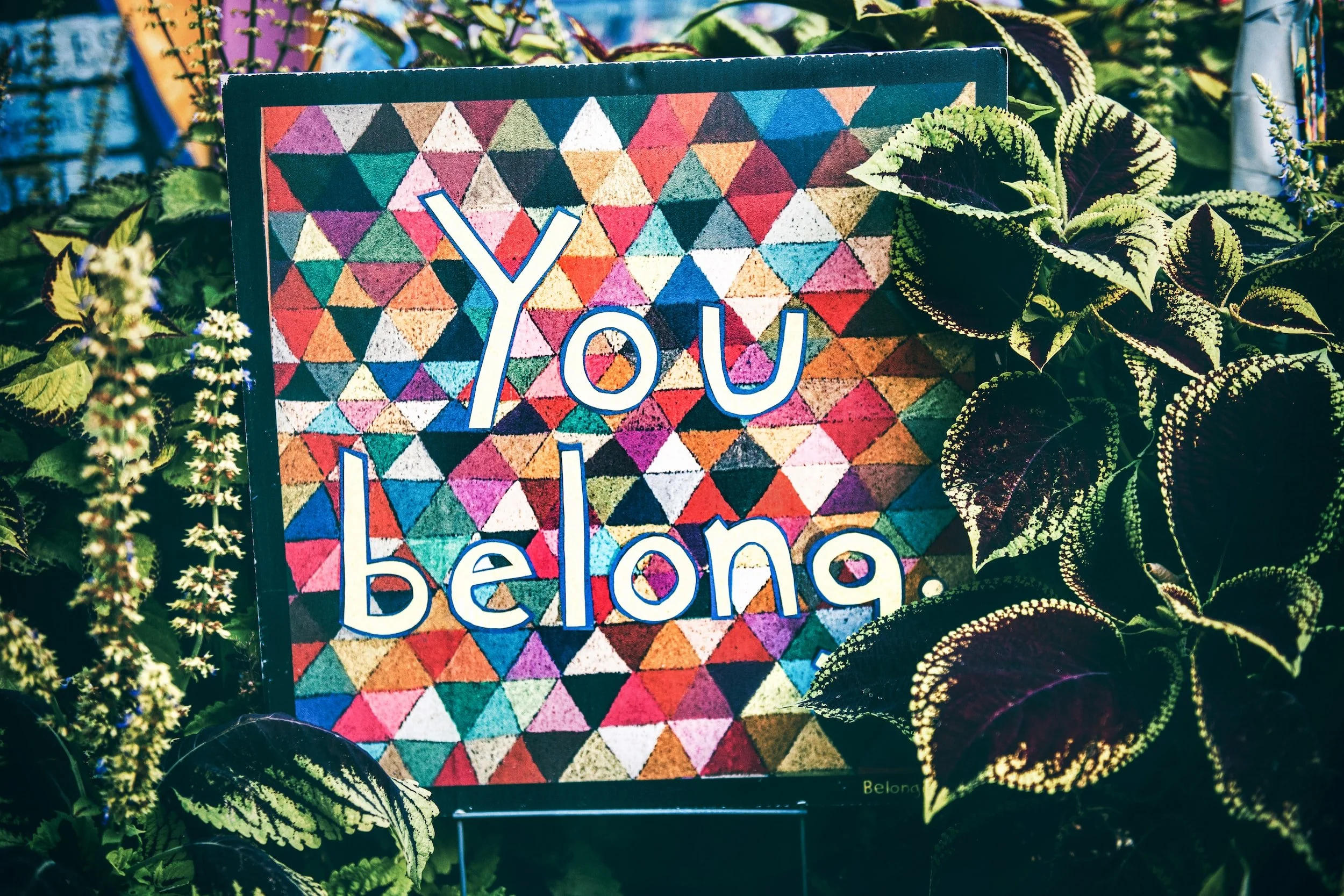Belonging Is Needed, But It Is Not Enough
A couple years ago, I was working with a coaching client who had just entered a new role. It was a C-Suite role and it was a big deal for them and the organization because she’s a Black woman, the only one with that intersection of identities at that level in the company. She was so excited about the role because the organization had a commitment to diversity, equity, and inclusion and had made good on that commitment through her hire and had even included budget for a coach to support her in transitioning into the role and the organization.
Not long after we began working together, she began to grow frustrated and somber in the job. Despite having a role so elevated that she sat at the highest levels of decision-making, she found herself feeling silenced in meetings with her peers. She began to wonder what was wrong with her. No one was explicitly saying her perspectives weren’t valid and she did not doubt the organization’s commitment to DEI. After all, she was there, right? So what was going on?
Eventually, we uncovered the issue. She was new to the organization and there were ways of being that she simply didn’t know. There were other ways of being she disagreed with. Many of her peer executive leaders had either grown up professionally in the organization or had been there over a decade. What’s more, the role she was stepping into promised a lot of change and it was clear some of her colleagues were not on board with those changes. The issue wasn’t diversity – there were all manner of identities that represented the space. The issue wasn’t inclusion – she undoubtedly was invited to the table and had authority and power within her role to enact change and influence decisions. It was literally her job. The issue wasn’t equity – there were intentional structures and systems that ensured she had access to people, resources, and leaders. The issue here was belonging.
She struggled to lead in the position because she did not feel that she belonged at the table. It was difficult to build deep relationships with many of her peers because most of them knew each other already and had for a while; the fact that she represented a threat to some of them also wasn’t helpful. They had ways of speaking, ways of doing work, ways of suggesting solutions, and many other ways of being and doing that created an environment where she felt alien. What’s more, no one bothered to bring her into any of it and there wasn’t much space made to reimagine what their space looked like with her as a part of it. In the women spaces with her peers, she was the only Black person. In the Black spaces, she was the only woman. The silence came from feeling like an outsider and no one supported her in belonging, even if she was welcome.
Now let’s shift to a different situation.
A little over a year ago, I was helping another client understand their culture data. What they saw was high percentages of people who intended to stick around and liked their manager, but they had no trust in leadership and little investment in the work they were charged with doing. The impact was that work often moved at a glacial pace and their flagship programs were attracting less and less people. Through some coaching with the client, and some follow-up empathy interviews, we discovered that the issue here was inclusion. While the vast majority of staff across a variety of demographics felt welcome and that they belonged at the organization (something I attribute to some pretty amazing managers), the lack of intentional structures that provided people with avenues to influence decision-making not only made them stagnant in their work, but also caused staff engagement to plummet.
Over the past few years, I have seen belonging being elevated as the thing we should all be striving for. Some people have even replaced their commitment to inclusion with a commitment to belonging. But here’s the thing – belonging is about a feeling, which is encouraged through creating psychologically safe environments where choice and agency are prioritized alongside individual needs. Because it is about a feeling, there is little real way to hold an organization accountable for creating that feeling — just ensuring the conditions can enable it. After all, conditions that foster belonging for one person or demographic might actually foster alienation for another person or demographic. That means that an effective belonging strategy is always going to be adaptive and focus on individualization. What belonging does not do effectively is distribute power.
There is a concept in belonging ideology that says belonging is knowing the words to the songs on the playlist. Equity is ensuring access and ability to use that playlist. Inclusion is being able to inform what’s on that playlist, and the folks most impacted being prioritized in decision-making. The issue with replacing inclusion with belonging is that it largely takes organizations and, in particular, executive leaders off the hook while placing a ton of responsibility upon the manager and the individual. A lack of belonging, then, is far less an indicator of organizational culture and more about manager effectiveness and staff engagement. I think we know better — it’s always both.
That said, I am not saying belonging is not needed. I provided the stories above as examples of when the absence of belonging or inclusion has led to a gap in experience and effectiveness. What I am recommending is an approach that makes inclusion and equity equally important. If I were to dig a click deeper, I would recommend organizational systems and structures to promote inclusion and an organizational talent management strategy to create the conditions for and enable managers to steward a culture of belonging.
This approach ensures that the entire spectrum of oppression or marginalization is addressed – the individual, interpersonal, structural, and systemic. Everyone is accountable in this approach. Executive leaders and systems owners are accountable for distributing power, actively seeking the voices of those whom their decisions impact, and operating with responsible transparency. Managers of people and holders of culture strategy are accountable for operating within those systems while also creating the conditions for belonging. Each individual is responsible for being self-aware, how they’re promoting belonging for others, and knowing their own needs as it relates to their sense of belonging.
It seems that over the last few years, change management has been the thing for so many leaders and organizations. The great thing about Diversity, Equity, Inclusion, and Belonging Strategy is that it is change management that directly addresses one of the hardest aspects of change efforts – managing the people issues. Those people issues are what will disrupt and undo change efforts, typically as a result of poorly executing (or not even considering) inclusion strategy.
I’m curious, though. What is this conversation sparking for you? Anything you agree with? Anything you disagree with? This feels like an important conversation, especially for those of us working to create more intentional, more just, more liberated spaces.







